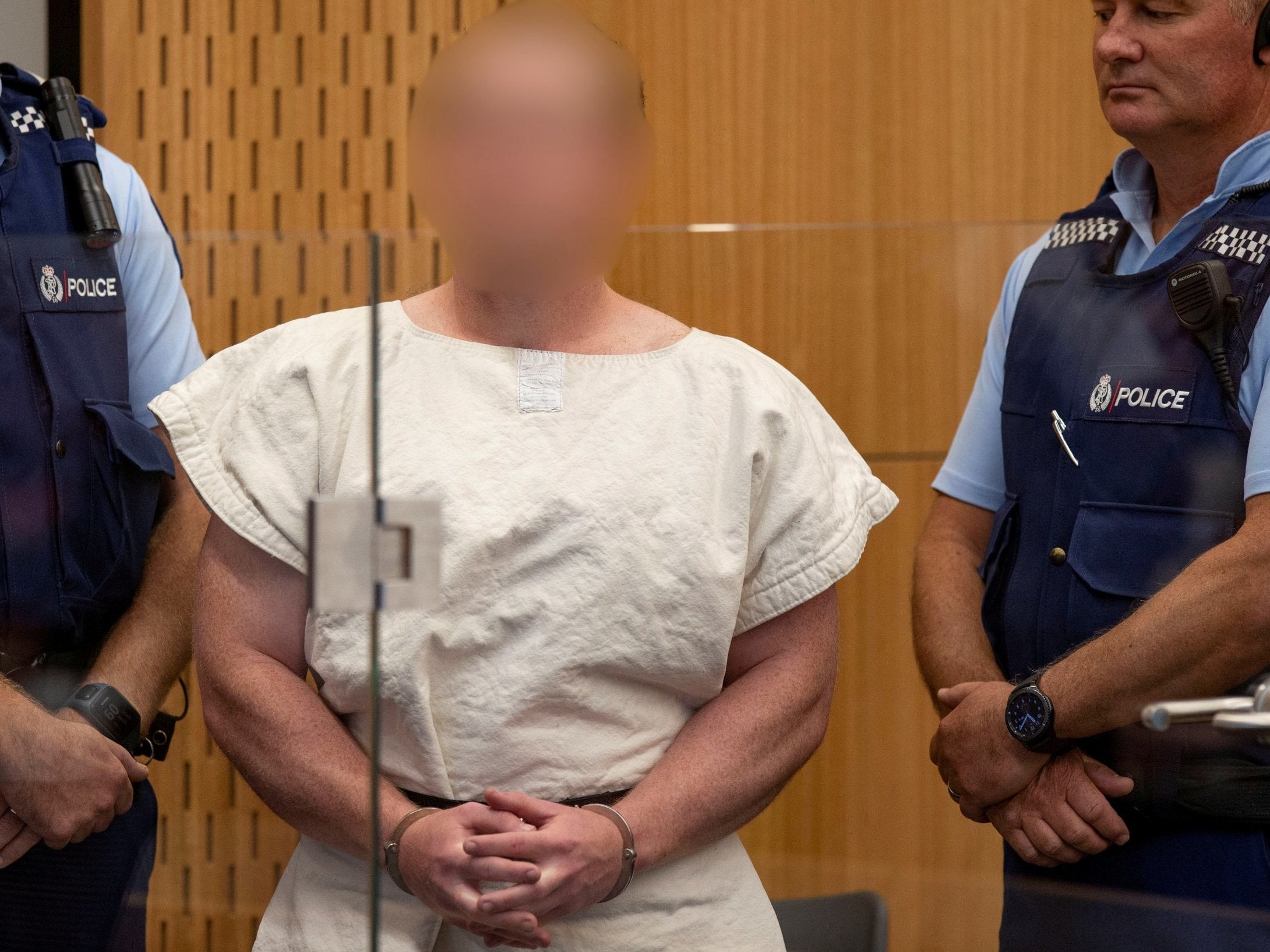Brenton Tarrant: Christchurch mosque attack suspect ordered to undergo mental health tests
Suspect appears via video link from New Zealand's only maximum-security prison

The man accused of killing 50 people in attacks on two mosques in the New Zealand city of Christchurch has been ordered to undergo a mental health assessments.
High Court judge Cameron Mander said Brenton Tarrant would be seen by experts to determine whether he was fit to stand trial or insane.
The 28-year-old who has been moved to New Zealand's only maximum-security prison in Auckland, appeared at the Christchurch High Court through a video link.
Handcuffed and seated, the Australian national was wearing a grey prison t-shirt as listened calmly throughout the hearing, which lasted roughly 20 minutes. He did not speak during the hearing and was not required to submit a plea.
Judge Mander ordered that two assessments would be carried out to determine the state of his mental health.
It had been reported that Tarrant wished to represent himself and legal experts had warned that he may try to use the hearings as a platform to present his ideology and beliefs.
However, it later emerged that he would be represented by two Auckland lawyers. One of them, Shane Tait, said in a statement on his website, which did not include any comments on the case.
Although journalists were able to attend and take notes, coverage of the hearing was restricted. Judge Mander said media could only publish pixellated images of Tarrant that obscure his face.
Police added an additional 49 murder charges, as well as 39 charges of attempted murder, to the one murder charge that had been filed the day after the attack.
Around two dozen family members of victims and some survivors of the attacks were present in the courtroom.
"I wanted to see the man who killed so many of my friends," said Tofazzal Alam, who attended the hearing. A regular at one of the mosques, Alam was not there during the attack. "The man had no emotion," he said when asked about seeing the suspect on video.
The massacre, which Prime Minister Jacinda Ardern labelled terrorism, was New Zealand's worst peacetime mass killing.
Dozens of representatives from around the world joined a national memorial service last week attended by Ms Ardern and tens of thousands of New Zealanders.
Muslims worldwide have praised New Zealand's response to the massacre, with many singling out Ms Ardern's gesture of wearing a headscarf to meet victims' families and urging the country to unite with the call: "We are one."

Thousands of visitors to the reopened Al Noor mosque, where 42 people were killed, have offered condolences and sought to learn more about Islam, said Israfil Hossain, who recites the daily call to prayer there.
"They are coming from far just to say sorry ... although they never did anything to us," the 26-year-old said.
A group of Carmelite nuns stood for the first time inside a mosque on thursday, holding back tears as they talked with worshippers about the two faiths.
"Everybody has their own problems and they have their own ideas about religions, and that's fine, and we should all have that, we're all different," said one nun, Sister Dorothea. "But we're all humans and that's the most important thing, our humanity."
Join our commenting forum
Join thought-provoking conversations, follow other Independent readers and see their replies
Comments
Bookmark popover
Removed from bookmarks